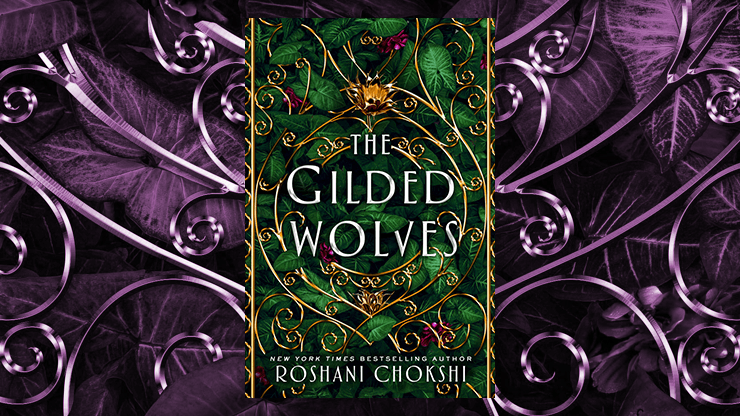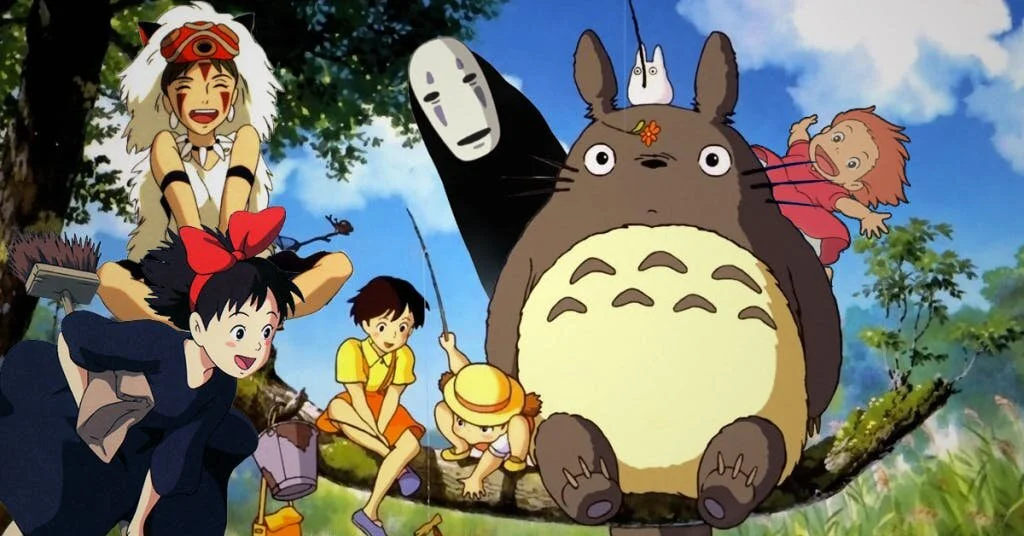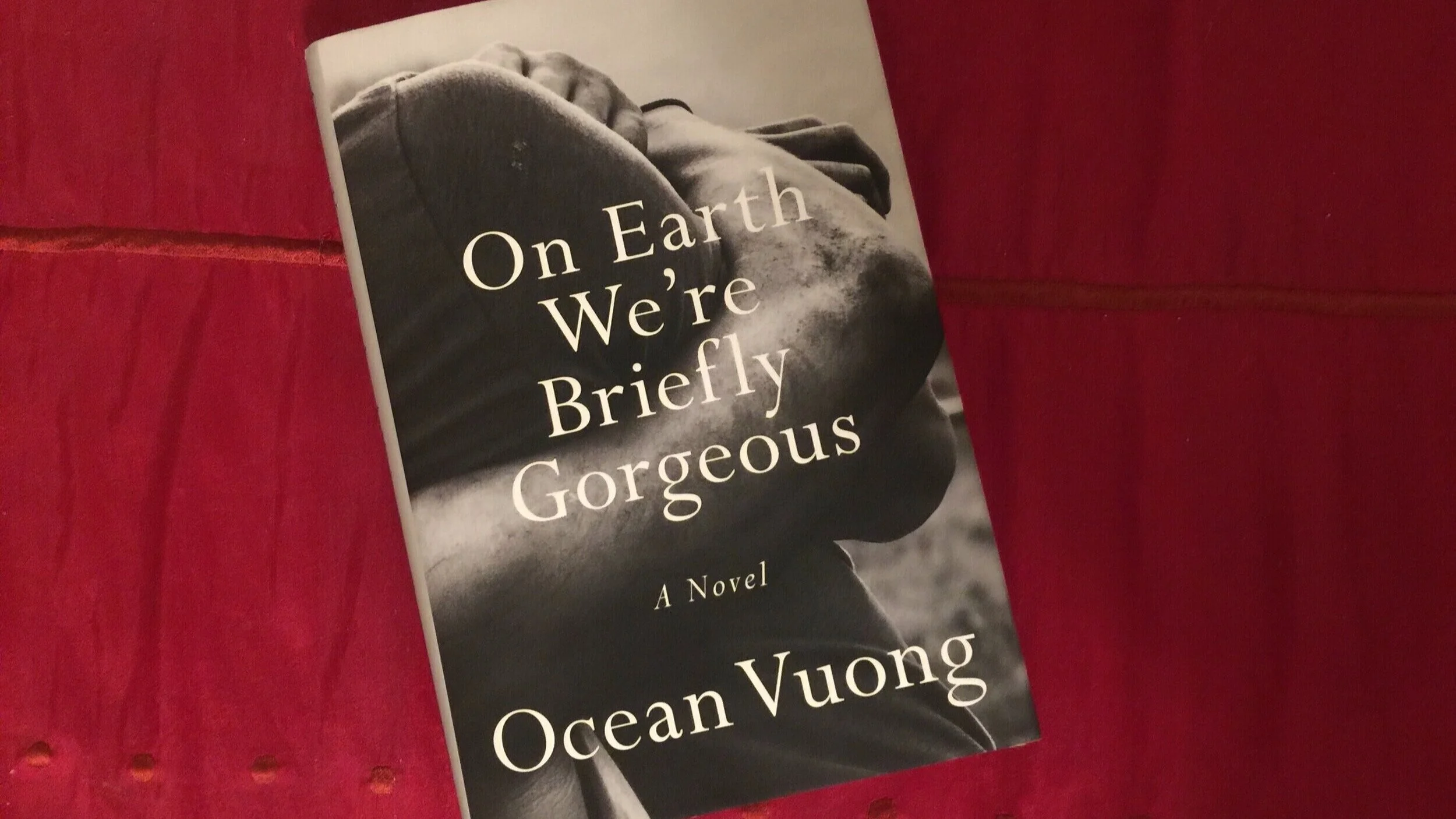Asian Heritage Month: In The Mood for Art
May is Asian Heritage Month and what better way to celebrate in isolation than by enjoying books, shows, and movies by Asian creators? While we still have miles to go before anything resembling parity in Canadian/ American mainstream media, it’s been awesome to see Asian representation in pop culture increase in recent years. I decided to take this chance to acknowledge our Academy Award wins and blockbuster hits and highlight some of my favourite stories across a range of mediums and genres.
Of course, so much more amazing pan-Asian art exists in the world and this list doesn’t even scratch the surface; I have an endless list of books and movies to get to myself. These are simply quick suggestions if you need a recommendation, whatever your mood.
In the mood to laugh & have your faith in love restored: Crazy Rich Asians (Chu, 2018) or Always Be My Maybe (Khan, 2019)
More rom coms can never go amiss when we’re in a pandemic. We all know of Crazy Rich Asians (and how can you not love that climax?) but Always Be My Maybe (in addition to being hilarious) also touched on meaningful themes of the ways food plays fundamental roles in our communities — how it differentiates the Asian kids in the lunchroom, how it’s transformed and been adapted to cater “to rich white people,” and how at the end of the day, it makes us “feel at home.” So many nuances of my relationship with my Vietnamese identity can be captured just through food, so this film struck a chord with me more than Crazy Rich Asians did, though both are perfect if you’re in the mood for sass and sap.
In the mood for some lighthearted drama/ missing The Mindy Project (TV Series 2012—2017): Never Have I Ever (TV Series 2020), by Mindy Kaling
I watched the entire first season of this show in less than 24 hours. Like Sex Education (TV Series 2019—), it left me wishing a show like that existed when I was in high school. It would’ve been groundbreaking for my journey of learning to be proud of my culture, which didn’t start happening until halfway through university. With Kaling’s signature humour and romance tropes, this return to high school drama was fun and relatable like no other depiction I’ve seen yet. The Ganesh Puja celebrations in episode 4 are what Lunar New Year celebrations are to me, and I loved the way Devi’s heritage was foregrounded throughout the show while simultaneously being far from the sole focus.
Also notable in this category is Kim’s Convenience (TV Series 2016—), by Ins Choi and Kevin White. I really enjoyed the local Toronto feel of the show, and it’s an easy feel-good one to breeze through. Big bonus: a couple years ago, I got the chance to meet and speak with actor Paul Sun-Hyung Lee about what East Asian representation means to youth growing up in our communities, which definitely ranks as my top celebrity interaction.
Lastly, though I’ve only seen the first few episodes, Fresh Off The Boat (TV Series 2015—2010), by Nahnatchka Khan was funny and heartwarming (I only stopped because time got in the way!) and is definitely worth checking out if you haven’t already.
In the mood to cry over unconventional immigration dramas: The Farewell (Wang, 2019) or Tigertail (Yang, 2020)
These films have vastly different plots, but for me, they touched on the same feelings of displacement that come from leaving home and family — loss of loved ones, loss of culture, loss of a future we once imagined. So often, the dominant narrative in western media frames immigration as a journey to the promised land for a new and better life. It never touches on the disconnect, trauma, and struggle to juggle two lives across the globe. These two heartbreaking tales did.
In the mood to get fired up about class struggles: Parasite (Joon-ho, 2019) or Shoplifters (Kore-eda, 2018)
Two creative approaches to showing one family’s financial challenges while going to extremes to look out for each other. These are not feel-good films, but that’s what I appreciated about them: they aren’t your classic stories of poor communities rich in love. Both movies speak about class and family in challenging and nuanced ways. If you’re more in the mood for a thriller, opt for Parasite. If you’re feeling like a slow heart-wrencher instead, Shoplifters will provide just that.
In the mood to get way too invested in young love: To All The Boys I’ve Loved Before (Johnson, 2018) or The Half Of It (Wu, 2020)
I loved both adaptations of Jenny Han’s YA trilogy, To All The Boys I’ve Loved Before. It was a classic romance and had all the markings of a great rom com, beloved tropes and all. On the other hand, The Half Of It tells us right from the start that it is “not a love story.” Both films delve into the heart-spaces of East Asian girls in predominantly white high school settings, though The Half Of It steps away from expectations and gives us more nuance into the different types of love that can bloom and transform.
In the mood for kick-ass fantastical adventures: Pandava Quartet or The Gilded Wolves, by Roshani Chokshi
If diverse children’s lit is your thing, Rick Riordan Presents is an awesome place to start. Though I haven’t read nearly all of them, I’ve loved the ones I have, such as the Pandava Quartet. Now with the news of a new and improved Percy Jackson adaptation coming to screens, I’m definitely in the mood to revisit some fun mythological adventures. Similarly, The Gilded Wolves is YA fantasy and perfect if you want all the mystery, romance, and suspense in a creative universe for a bit of an older audience.
In the mood for magic: Any Studio Ghibli Film (there’s one for every mood in this collection alone!)
If you haven’t discovered the wonders of Studio Ghibli yet, you are in for a wondrous ride. There’s nothing I can say about these movies that hasn’t been said already, so I’ll just mention a few of my favourites: Kiki’s Delivery Service (1989), Whisper of the Heart (1995), and (of course) Spirited Away (2001). I haven’t seen a number of them, but each new watch (or re-watch, frankly) leaves me awestruck at the creativity and detail of these stories. The things I love most about them is how much trust they place in the audience and how much agency their young characters hold — something Hollywood movies often fail at.
In the mood to learn and get real: Persepolis, graphic novel by Marjane Satrapi or First They Killed My Father, by Loung Ung
Both heavy memoirs by women living at critical periods of their countries’ histories: the Iranian Revolution and the Khmer Rouge reign in Cambodia respectively. Both have been adapted into great films — Persepolis (Satrapi & Winshluss, 2007) and First They Killed My Father (Jolie, 2017) — so you can either read or watch (or do both) if you’re in the mood to learn about critical historical events never taught in North American schools.
In the mood for gorgeous prose: On Earth We’re Briefly Gorgeous, by Ocean Vuong
This book was like nothing I’d ever read before; I finished it in a single gripping 3-hour sitting (which doesn’t happen often anymore). Vuong is a poet, so his writing is breathtaking. I found myself stopping at several points to just take the sentences in over and over again. The story itself, largely autobiographical, is captivating. When I finished, I felt like I had stepped out of another universe (as the best books do) but also one familiar to me as a Vietnamese immigrant. If you were to prioritize one recommendation from this entire list, this one would be it.
Also worth mentioning under this category are Kim Thúy’s books, Ru (2009) and Mãn (2013), both beautifully written pieces of literary fiction that touch on themes of identity, displacement, food, and reminiscences of Vietnam (written in French so bonus if you can read in their original language). I haven’t read her third book, Vi (2016), but it’s one of many on my list.











